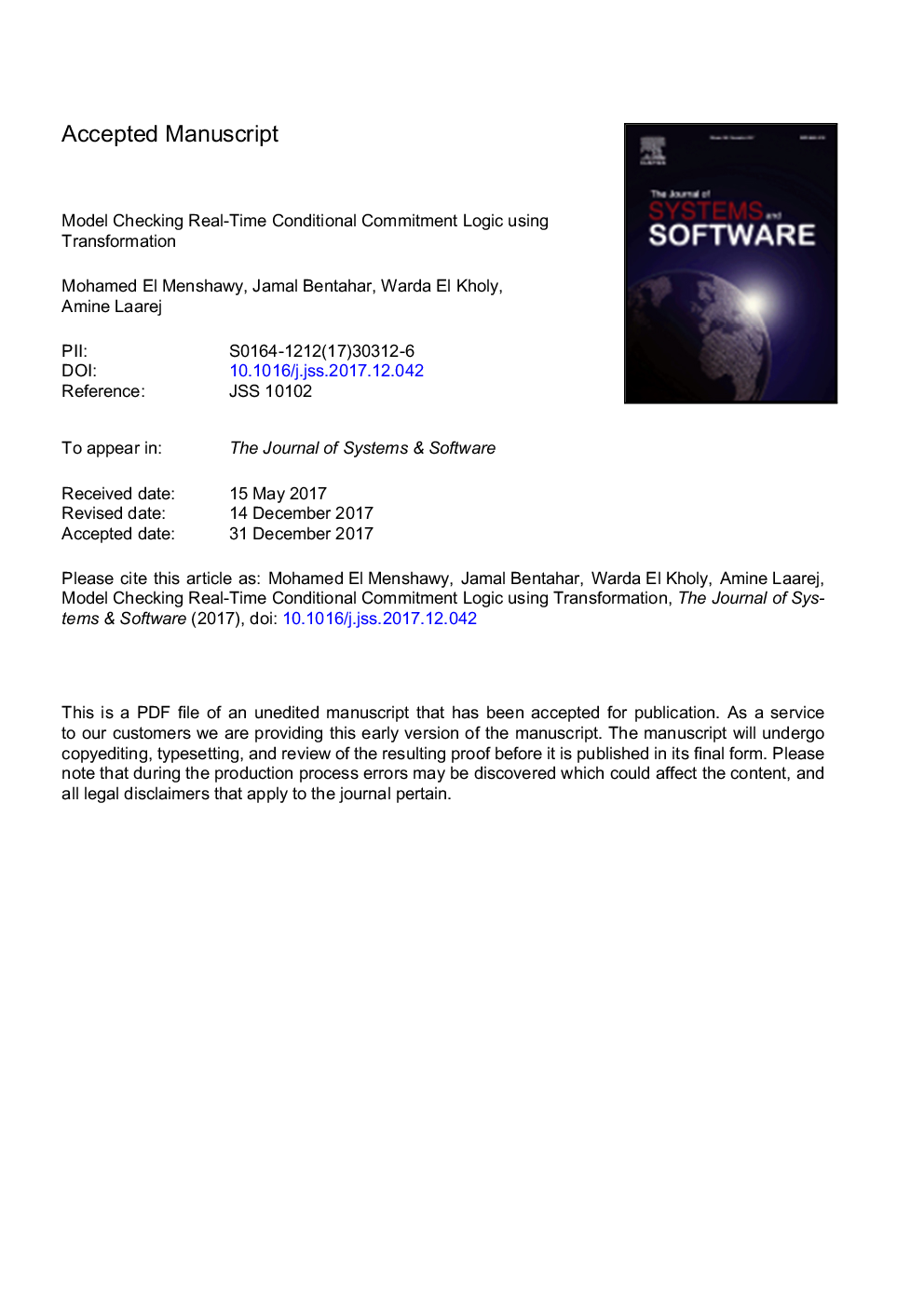ترجمه فارسی عنوان مقاله
مدل چک کردن منطق تعهد شرطی در زمان واقعی با استفاده از تحول
عنوان انگلیسی
Model checking real-time conditional commitment logic using transformation
| کد مقاله | سال انتشار | تعداد صفحات مقاله انگلیسی |
|---|---|---|
| 135364 | 2018 | 43 صفحه PDF |
منبع

Publisher : Elsevier - Science Direct (الزویر - ساینس دایرکت)
Journal : Journal of Systems and Software, Volume 138, April 2018, Pages 189-205
ترجمه کلمات کلیدی
به موقع، الزامات تعهدی کیفی و کمی، تکنیک تبدیل، پیچیدگی،
کلمات کلیدی انگلیسی
Real-time; Qualitative and quantitative commitment requirements; Transformation technique; Complexity;

